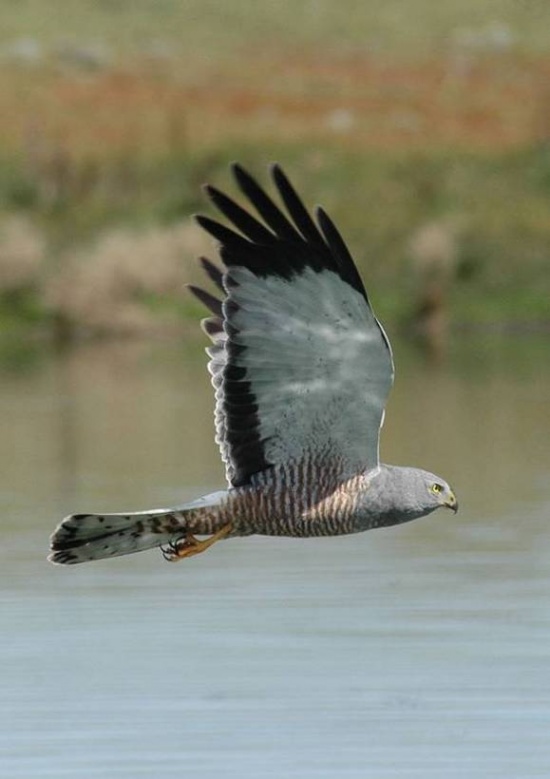(update link) |
Nutcracker (talk | contribs) (more details) |
||
| Line 18: | Line 18: | ||
Rare visitor and probable former breeder in the [[Falkland Islands]]. | Rare visitor and probable former breeder in the [[Falkland Islands]]. | ||
==Taxonomy== | ==Taxonomy== | ||
| − | This is a [[Dictionary_M-O#M|monotypic]] species<sup>[[#References|[1]]]</sup>, which | + | This is a [[Dictionary_M-O#M|monotypic]] species<sup>[[#References|[1]]]</sup>, which was formerly treated as a race of either [[Hen Harrier]] ''C. cyaneus'' or [[Northern Harrier]] ''C. hudsonius'' by some authors. |
==Habitat== | ==Habitat== | ||
Latest revision as of 09:32, 27 August 2017
- Circus cinereus
Identification
Male - 40cm
- Dark grey upperparts
- White rump
- Pale grey underparts
- Rufous streaked belly
- Black wing tips
Female - 50cm
- Brown upperparts
- White rump
- Cream underparts
- Streaked belly
Distribution
South America. Breeds from Colombia and Peru south through Chile, Paraguay, south-eastern Brazil, Uruguay and much of Argentina to Tierra del Fuego. A partial-migrant in south of range.
Rare visitor and probable former breeder in the Falkland Islands.
Taxonomy
This is a monotypic species[1], which was formerly treated as a race of either Hen Harrier C. cyaneus or Northern Harrier C. hudsonius by some authors.
Habitat
Found in marshes and open grasslands, maximum 4500m.
Behaviour
Breeding
It is a ground nester.
Diet
The diet includes small rodents, birds, reptiles, amphibians and insects.
References
- Clements, JF. 2009. The Clements Checklist of Birds of the World. 6th ed., with updates to December 2009. Ithaca: Cornell Univ. Press. ISBN 978-0801445019.
- Wikipedia
Recommended Citation
- BirdForum Opus contributors. (2024) Cinereous Harrier. In: BirdForum, the forum for wild birds and birding. Retrieved 18 April 2024 from https://www.birdforum.net/opus/Cinereous_Harrier




